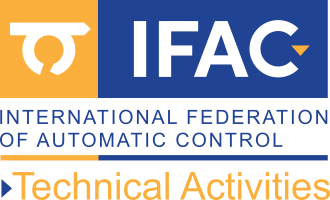Main

Welcome to the homepage of IFAC Technical Committee on Mechatronic Systems!
Mechatronics, from a control engineer's perspective, is a synergistic approach to utilize advanced control, sensing, and actuation methodologies in a variety of applications across many fields, such as robotics and automation, motion and vibration control, automotive systems, biomedical systems, micro and nanoscale systems, energy systems, and information storage systems. One core aspect of the mechatronic system design is the holistic design concept of the overall system, including the (mechanical and electric) design, the observer design, and the closed-loop control.
This IFAC technical committee shows steady growth in response to the increasing relevance of a mechatronic design approach in many scientific and industrial applications. The IFAC TC 4.2 hosts mechatronics sessions at IFAC World Congresses and organizes the IFAC Symposia on Mechatronic Systems. Our flagship journal is the IFAC Journal on Mechatronics. The members of TC 4.2 and the publications in IFAC conferences and journals reflect the truly multi- and interdisciplinary nature of mechatronics, as defined in the Scope of the IFAC TC on Mechatronic Systems.
If you are interested in mechatronics and control engineering, please consider joining the Technical Committee on Mechatronic Systems and participating in activities organized by the Committee.
Wolfgang Kemmetmüller, Chair
TC 4.2 Mechatronic Systems
Scope
Many products and production processes involve the integration of mechanics and electronics (hardware) with information processing (software), resulting in mechatronic systems. The field of applications covers a broad range of industrial sectors such as aerospace, agriculture, consumer, energy, health care, manufacturing, mining, transportation, automotive, etc. The signature of mechatronic systems is enabling innovative solutions attributed to the synergistic integration of sensors, actuators, and real-time computing systems, where algorithms for real-time estimation, decision, and control are embedded.
The scope of the TC includes fundamental theory, holistic design methodology, technical innovation, and advances in industrial and emerging applications. Topics of interest include modeling, identification, control, sensing, actuation, and synergetic interdisciplinary and inter-domain design and system realization methodologies. These topics are applied to a broad range of industrial sectors and basic scientific and applied research and development. For example, mechatronic systems contribute to education and the technological advances in nano/micro/macro manufacturing, aero/space/ground/underwater powertrains and vehicles, energy systems, medical systems, cyber-physical systems, Internet-of-Things, robotics, etc.

